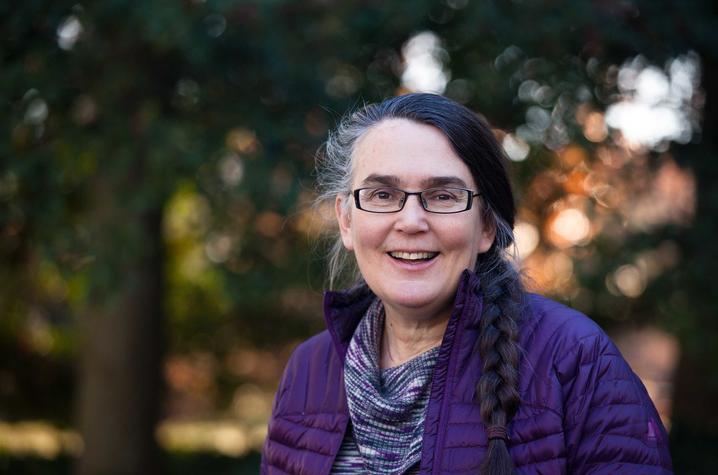UK Part of New NSF Physics Frontier Center Focused on Neutron Star Modeling in 'Gravitational Wave Era'

LEXINGTON, Ky. (Sept. 1, 2020) — The University of Kentucky is part of a new Physics Frontier Center (PFC) that launched today at the University of California, Berkeley. Sponsored by the National Science Foundation (NSF), the Network for Neutrinos, Nuclear Astrophysics, and Symmetries (N3AS) PFC seeks to improve understanding of the most extreme events known in the universe: mergers of neutron stars and their explosive aftermath — which includes ripples in space-time known as gravitational waves.
Susan Gardner, professor in the UK Department of Physics and Astronomy in the College of Arts and Sciences, is leading the effort on behalf of UK.
“I am really enthusiastic about the new Physics Frontier Center and am delighted at having the chance to participate in it,” Gardner said. “The ability to detect gravitational waves opens new windows on the study of cold matter at high densities, and the potential for new scientific discoveries is high. I feel that my broad background in nuclear, particle and astrophysics is helpful to making connections within our multi-institution collaboration."
Gardner is currently working with Berkeley postdoc Jeff Berryman at UK under their existing N3AS consortium to study possible new particle interactions and how they might be probed in this new regime. She expects to address similar topics within the PFC with a future postdoc.
“We operate as a single team, combining our expertise in order to tackle the complex multi-physics problems that arise in astrophysics — problems that are beyond the capacity of a single investigator,” said Wick Haxton, theoretical nuclear physicist in Berkeley Lab’s Nuclear Science Division and principal investigator of the PFC.
The center builds upon an NSF-funded research hub in multi-messenger nuclear astrophysics that was established in 2017, and a foundation of support for this field of research by the Office of Nuclear Physics within the U.S. Department of Energy’s Office of Science. With the upgrade to a Physics Frontier Center, there will now be broader community participation in the effort and an expanded scope of research. The NSF commitment to the N3AS Center will be $10.9 million over five years.
“The newly established Network for Neutrinos, Nuclear Astrophysics, and Symmetries Physics Frontier Center will reveal new information about the physics in extreme astrophysical environments, allowing scientists to address major questions in physics and multi-messenger astrophysics,” said Jean Cottam Allen, NSF program officer overseeing the Physics Frontier Centers.
Institutional members of the PFC include: UC Berkeley, Los Alamos National Laboratory, North Carolina State University, Northwestern University, Ohio University, Pennsylvania State University, UC San Diego, University of Kentucky, University of Minnesota, University of New Hampshire, University of Notre Dame, University of Washington, and University of Wisconsin, Madison.
Read the full press release at: https://newscenter.lbl.gov/2020/08/17/new-nsf-physics-frontier-center-will-focus-on-neutron-star-modeling-in-gravitational-wave-era/
As the state’s flagship, land-grant institution, the University of Kentucky exists to advance the Commonwealth. We do that by preparing the next generation of leaders — placing students at the heart of everything we do — and transforming the lives of Kentuckians through education, research and creative work, service and health care. We pride ourselves on being a catalyst for breakthroughs and a force for healing, a place where ingenuity unfolds. It's all made possible by our people — visionaries, disruptors and pioneers — who make up 200 academic programs, a $476.5 million research and development enterprise and a world-class medical center, all on one campus.




